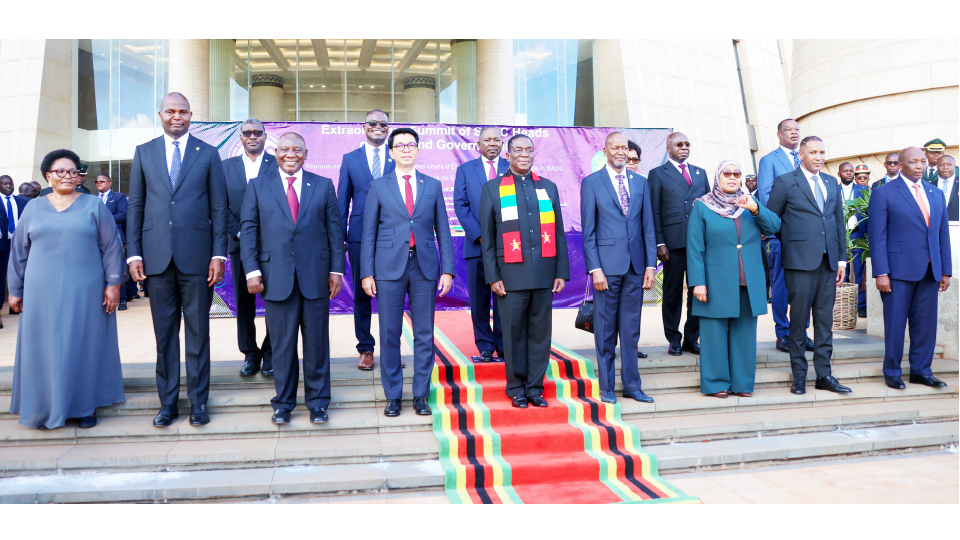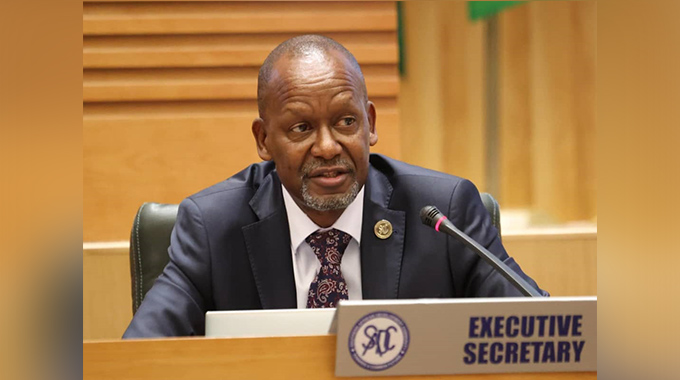
Nick mangwana
Governament Up Close
As Zimbabwe opens its doors to foreign investment, we are reminded of the importance of responsible and sustainable investment practices.
The influx of foreign investors has brought with it a mix of opportunities and challenges.
While investment is crucial for economic growth and development, it must not come at the expense of our citizens’ well-being and the environment.
Unfortunately, there has been disturbing reports of investors abusing local workers, disregarding labour laws, and neglecting environmental regulations.
This behaviour is not only unacceptable but also eerily reminiscent of the colonial era, where the exploitation of local resources and labour was rampant.
The echoes of colonialism are particularly poignant in Zimbabwe, where the scars of historical exploitation still linger.
The country’s natural resources, including land, minerals, and wildlife, were plundered by colonial powers, leaving behind a legacy of poverty, inequality, and environmental degradation.
Today, as we welcome foreign investors, we must ensure that they do not perpetuate the same exploitative practices of the past.
Investors must recognise that their operations have a direct impact on local communities and the environment and take steps to mitigate any negative effects.
The abuse of local workers by some foreign investors is a disturbing trend that must be addressed.
Labour laws are in place to protect workers from exploitation and ensure they receive fair treatment.
Investors must adhere to these laws, providing workers with safe working conditions, fair wages, and benefits.
The disregard for labour laws is not only unethical but also illegal.
Investors who flout these laws will be held accountable, and the Government will not hesitate to take decisive action to protect the rights of local workers.
In an independent Zimbabwe, our workers cannot be treated the way they were treated during colonialism.
For those too young to remember, during the colonial era in Zimbabwe, the abuse of workers was rampant and often brutal.
Many African labourers were forced to work in hazardous conditions, with minimal pay and no protections.
One of the most egregious forms of abuse was the use of sjamboks, a type of whip made from animal hide, to discipline and punish workers. The sjambok was often used to inflict severe physical pain and humiliation on workers, with many suffering from lacerations, broken bones, and even death.
This brutal treatment was perpetuated by colonial authorities and farm owners, who saw African workers as nothing more than cheap labour to be exploited for their own gain.
The trauma and scars of this period continue to be felt today, serving as a stark reminder of the darker aspects of Zimbabwe’s colonial past. Any treatment of our citizens which is even remotely resemblant of this is not acceptable at all.
The use of physical violence and humiliation as a means of controlling and exploiting workers is a reprehensible practice that has no place in an independent Zimbabwe.
The country’s liberation struggle was fought precisely to overthrow the oppressive systems of colonialism and establish a society founded on dignity, equality, and justice.
The notion that any individual or group can wield power over others through fear, intimidation, and physical harm is an affront to the values of freedom, democracy, and human rights that Zimbabwe holds dear.
As a nation, we must unequivocally condemn such behaviour and ensure that all workers are treated with the respect, dignity, and protection they deserve under the law.
Let us move on to issues around the environment.
The neglect of environmental regulations by some foreign investors is another area of concern.
Environmental laws are in place to protect Zimbabwe’s natural resources and ensure sustainable development. Investors must comply with these laws, conducting environmental impact assessments and implementing sustainable practices.
The degradation of our environment can have severe consequences, including loss of biodiversity, soil erosion, and water pollution.
Investors must recognise the importance of environmental sustainability and take steps to minimise their ecological footprint.
Gold panning in rivers cannot be touted as a form of investment.
It is a highly destructive and unproductive activity that yields little to no benefit for the country or its people.
Rather than creating employment opportunities or stimulating economic development, gold panning merely serves to degrade the environment, causing widespread siltation and damage to riverine ecosystems.
Furthermore, this activity generates no meaningful revenue for the Treasury, as the gold extracted is often smuggled out of the country or sold on the black market.
In truth, gold panning in rivers is nothing more than a primitive and unsustainable practice that prioritises short-term gains over long-term environmental and economic sustainability. Surely, you cannot leave your country and fly for many hours to come and do artisanal gold panning or mining in Zimbabwe. No matter how good the yields are, tha is not an investment. This is why the Government issued Statutory Instrument 188 of 2024.
This instrument prohibits all alluvial mining operations, including gold panning, due to environmental concerns and health risks.
Then there is the issue of some investors completely ignoring issues of Corporate Social Responsibility (CSR).
Corporate social responsibility is essential for investors operating in Zimbabwe. CSR involves investing in local communities, providing jobs, and supporting local businesses. Investors must recognise that their operations have a direct impact on local communities and take steps to mitigate any negative effects.
The concept of CSR is not new, but its implementation is often lacking.
Investors must move beyond mere lip service or perfunctory tokenism and implement meaningful CSR initiatives that benefit local communities.
There are also allegations of some foreign investors bribing a few local chiefs so as to do as they please with the environment, local community pastures and sometimes even people’s fields.
For most Zimbabweans, this is their home and they know no other.
Therefore, we will not allow someone to come into this country to ride roughshod over the rights of our people, extract our resources damage our environment and leave when they are done, leaving us poorer, with no dignity and our children and animals falling into pits and getting maimed. This Government has no intention of failing its people that way.
As a Government, we have a critical role to play and we will ensure that investors comply with our labour laws, environmental regulations, and CSR practices. We have a number of laws and regulations; whose compliance we will ensure is enforced.
Where the strengthening of regulations is indicated, we will ensure that is done without hesitation, fear or favour.
CSR is not about bribing a local traditional leader. That is actually its antithesis because there is nothing responsible about paying a bribe.
Investors operating in Zimbabwe have a critical responsibility to ensure their activities do not degrade the country’s infrastructure, but rather contribute to its development. Specifically, if an investor’s operations utilise a road, they must maintain or upgrade that road to prevent damage and ensure its longevity.
This is not only a matter of corporate social responsibility, but also a necessary investment in the country’s economic growth. Furthermore, where no roads exist, investors must construct and pave roads that benefit not only their own operations, but also the surrounding communities.
Grading convenient pathways for exclusive use is unacceptable and perpetuates the notion that investors are only interested in extracting resources without giving back to the country.
By investing in road infrastructure, investors can demonstrate their commitment to Zimbabwe’s development and leave a lasting positive legacy. The modus operandi of some investors in rural Zimbabwe is alarming and unacceptable.
These investors swoop into rural communities, extracting valuable resources without regard for the long-term consequences.
They build infrastructure, but only for their own use, without consideration for the needs of the local community.
Once they have depleted the resource, they abandon the area, leaving behind a trail of destruction and devastation.
The local community is left with nothing, no benefits, no infrastructure, and no skills to show for the exploitation of their resources.
This predatory approach to investment is a stark reminder of the dark days of colonialism and must be condemned in the strongest possible terms.
The lack of skills transfers and technology sharing by these investors is equally egregious.
By excluding local individuals from sensitive processes and refusing to train them in the use of certain technologies, these investors ensure that the local community derives no lasting benefits from their presence.
This is a deliberate attempt to maintain a power imbalance, where the investor holds all the cards, and the local community is left in a state of perpetual dependence.
Skills transfer and technology sharing are essential components of responsible investment, and their absence is a clear indication that an investor is not committed to the long-term development of the local community.
As Zimbabwe continues to attract foreign investment, it is imperative that all investments leave a positive legacy for future generations.
Officiating at the launch of the Responsible Mining Initiative in 2023, His Excellency President Mnangagwa clearly spelt out that “The situation where the mining sector is characterised by malpractices such as environmental degradation, mineral leakages and haphazard operations conducted outside the legal provisions of our country laws can never be condoned.
“The centrality of the mining sector in the broader national development, modernisation and industrialisation of our country entails that all stakeholders demonstrate a greater sense of responsibility in the mining activities. Zimbabwe is open for business and is not open for abuse.”
This means investors must prioritise sustainable and responsible practices, ensuring that their operations not only benefit the economy but also protect the environment, respect human rights, and uplift local communities. Investments should create decent jobs, stimulate local entrepreneurship, and contribute to the country’s tax base. Moreover, investors must demonstrate a commitment to transparency, accountability, and good governance, aligning their activities with Zimbabwe’s Vision 2030 and the United Nations’ Sustainable Development Goals.
By doing so, investments can become a catalyst for transformative and inclusive growth, leaving a lasting positive impact on the country and its people.
The future of Zimbabwe depends on it.
Nick Mangwana is the Permanent Secretary for Information, Publicity and Broadcasting Services










